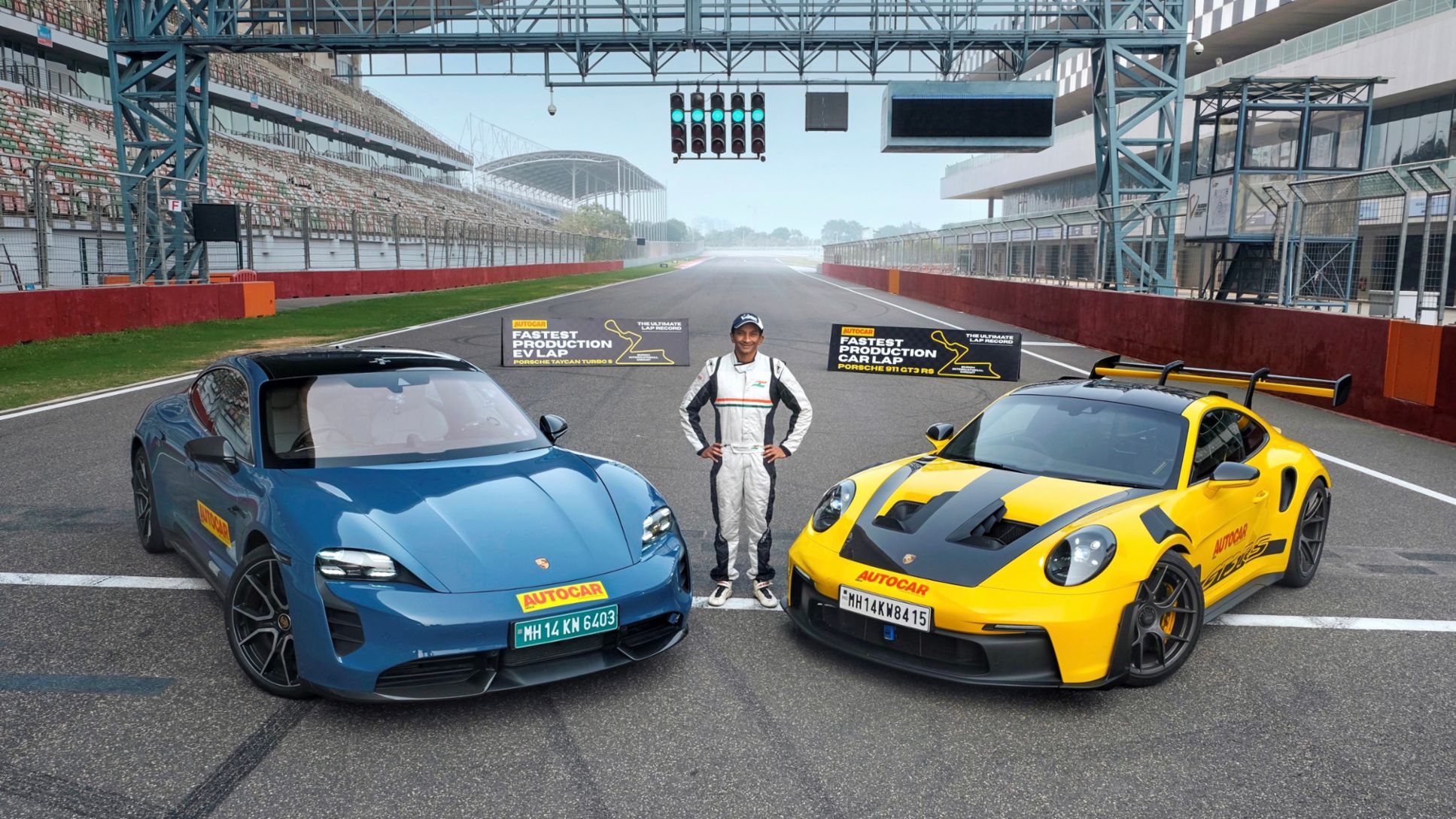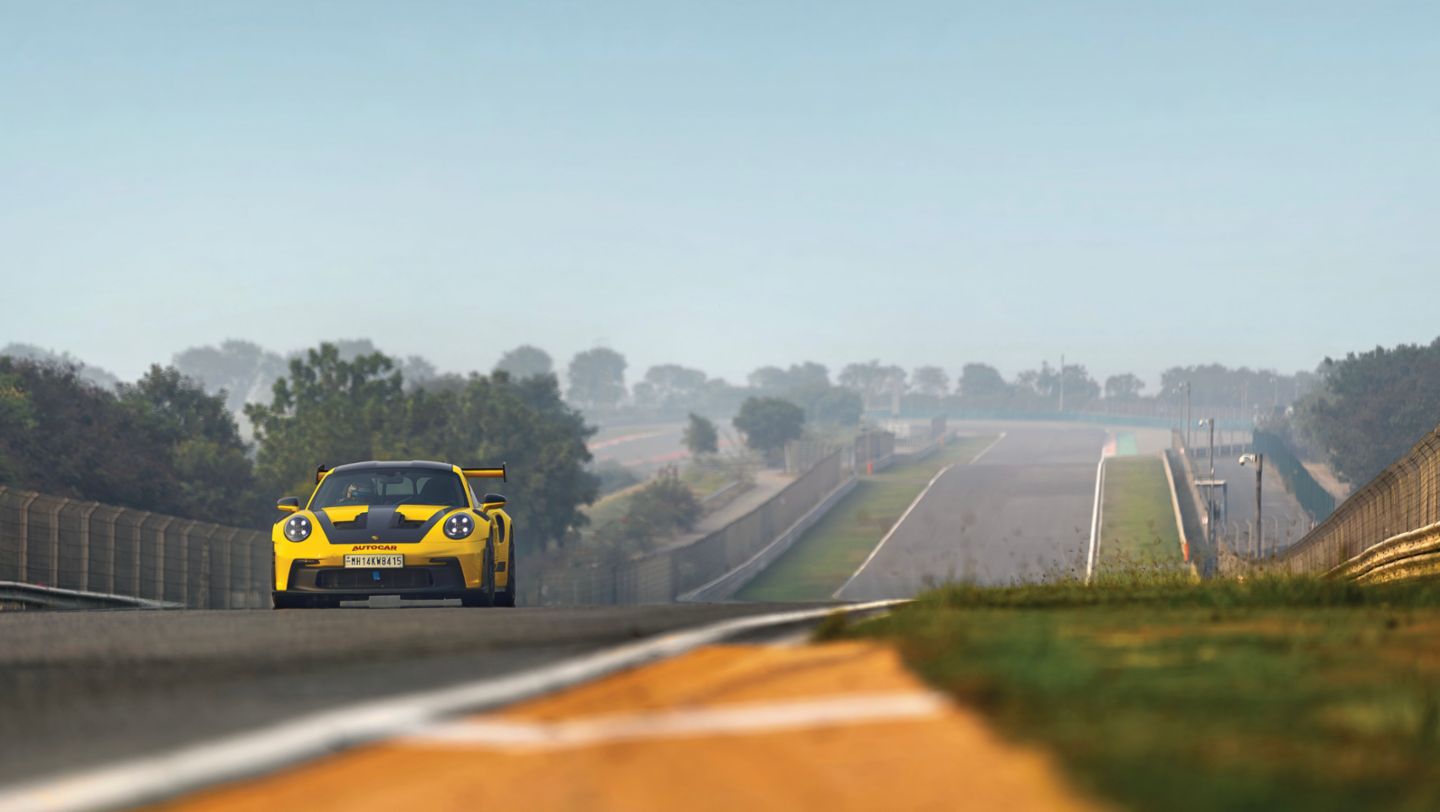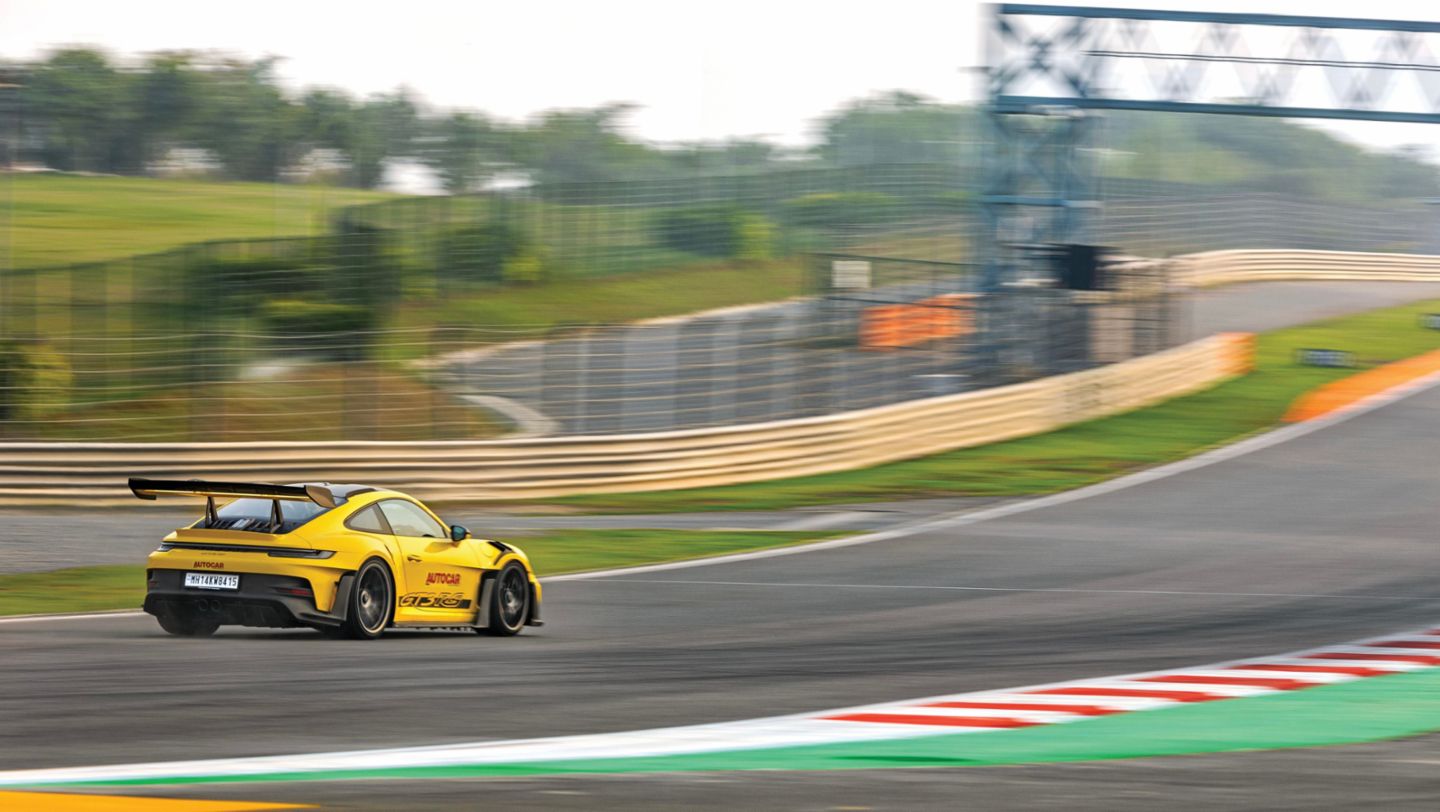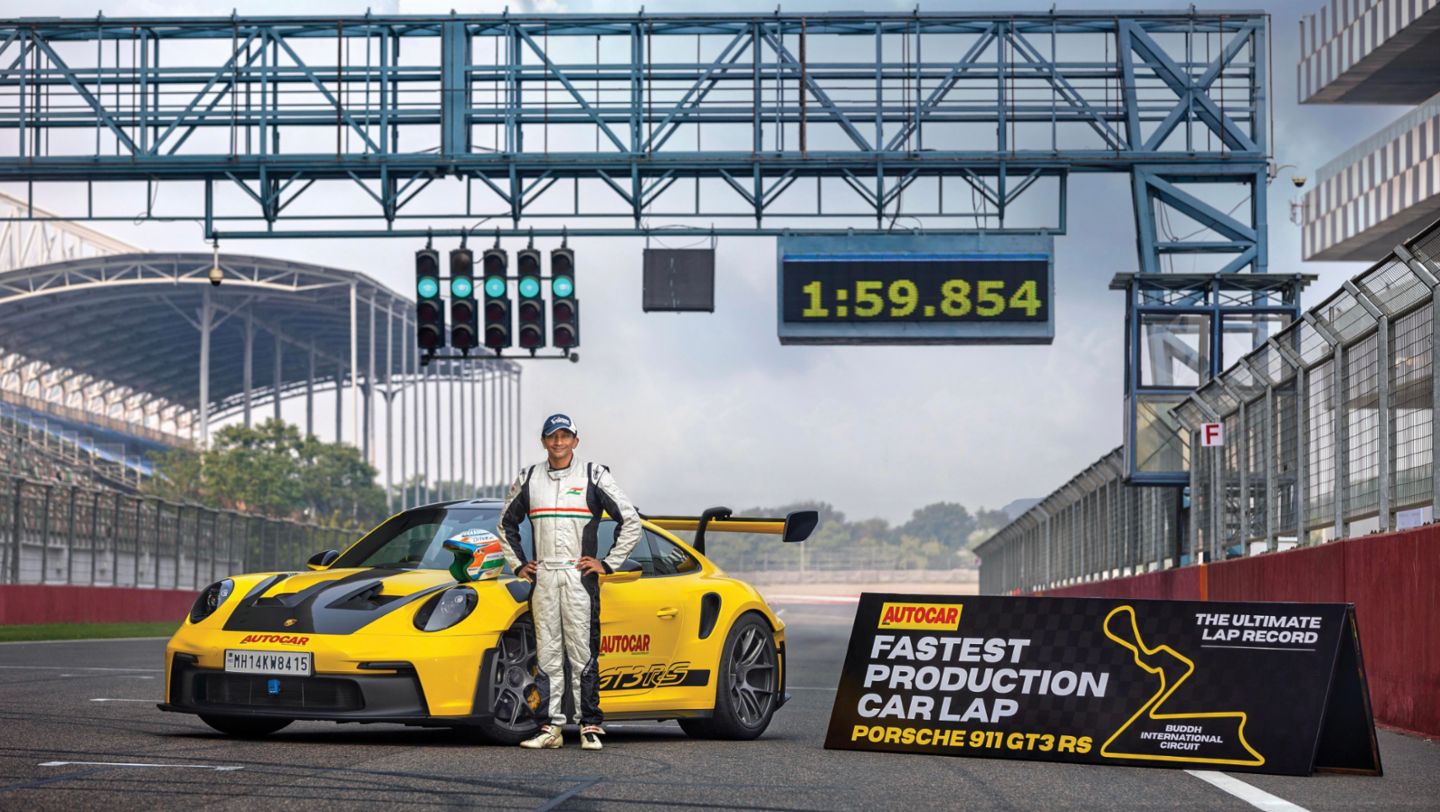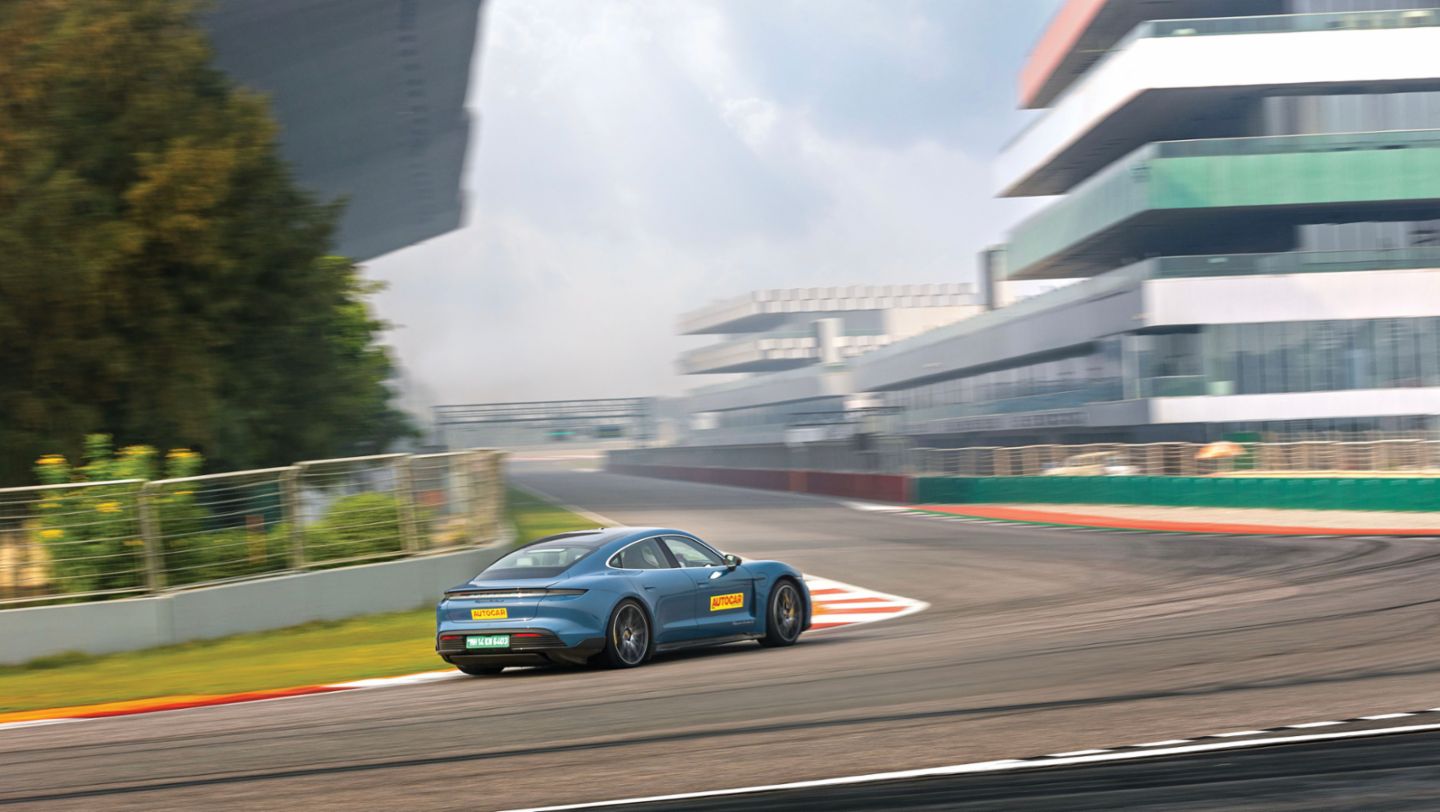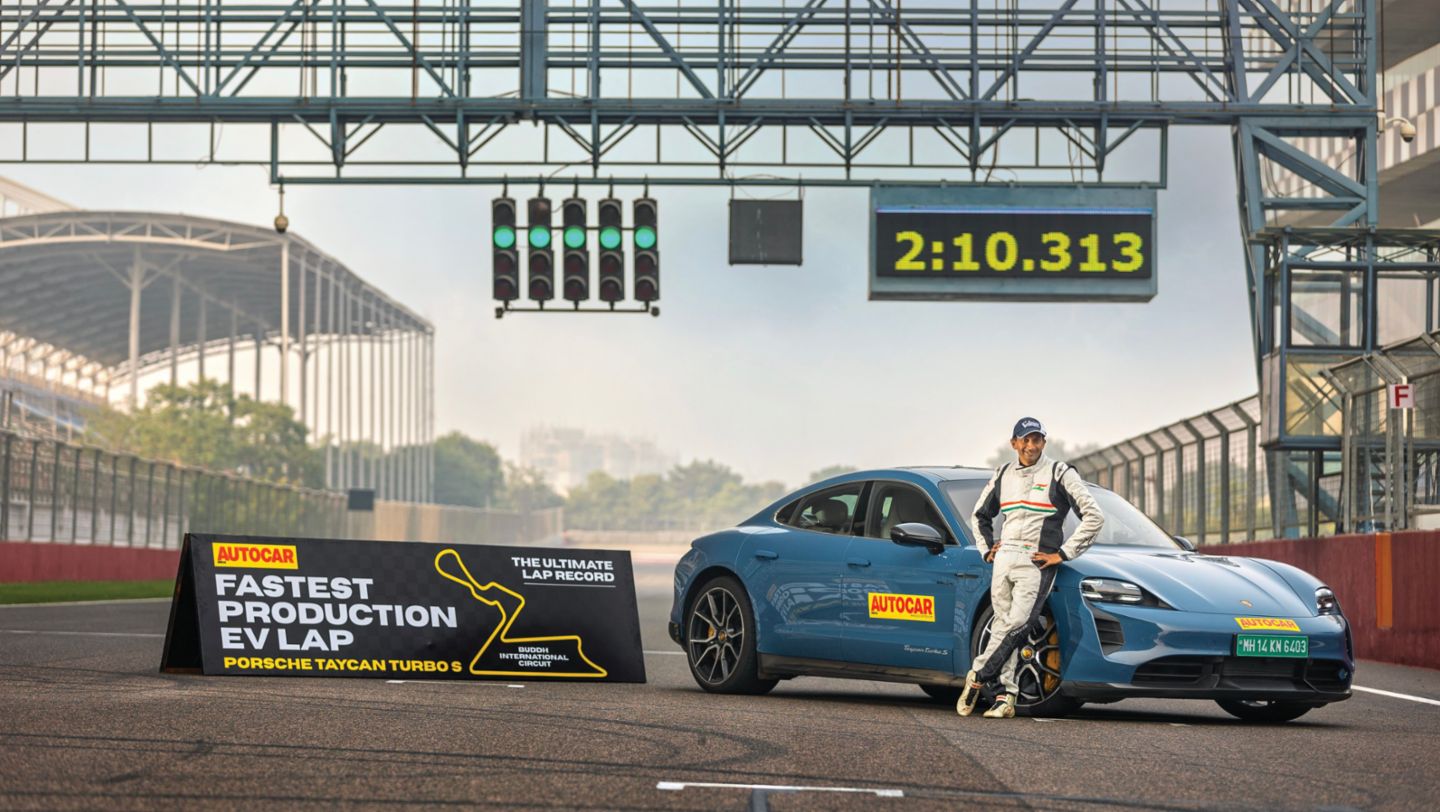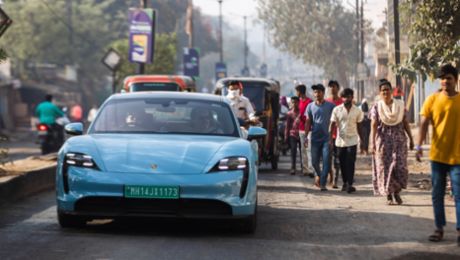Driving the GT3 RS, Narain Karthikeyan broke the previous record of 2m 00.266 seconds — set by Karthikeyan himself in a 911 GT2 RS in 2019 — and registered a new lap time of 1m 59.854 seconds. The new record makes the Porsche 911 GT3 RS the fastest production car around the Buddh International Circuit and the only one to lap the circuit under two minutes.
Registering speeds of over 250km/h on the straights, the 911 GT3 RS’s new record cements its place among the Stuttgart-based brand’s illustrious list of accomplishments.
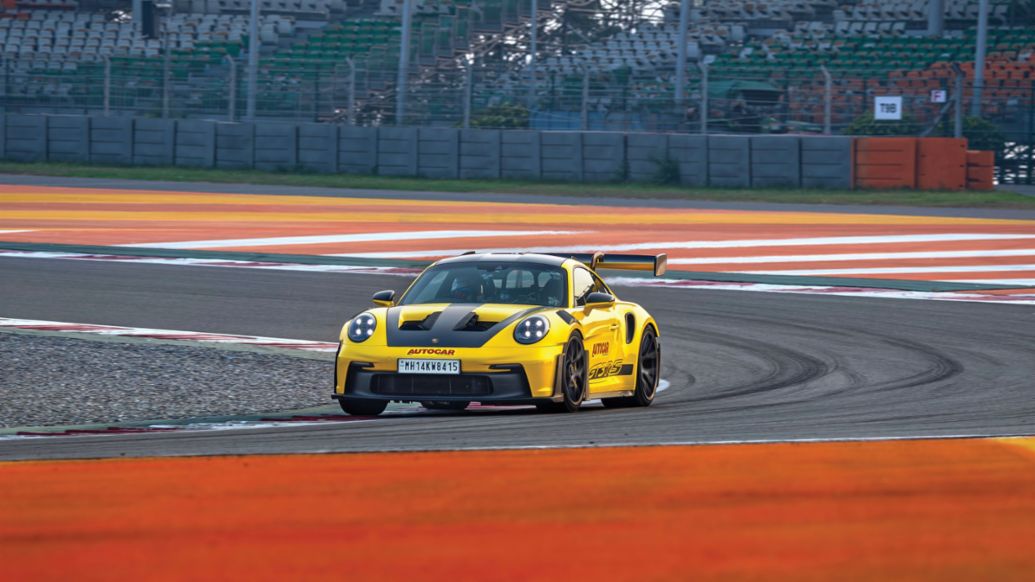
The 525 PS 992-generation 911 GT3 RS is powered by Porsche’s 4.0-litre naturally aspirated flat-six engine (911 GT3 RS (WLTP)*: Fuel consumption combined: 13.2 l/100 km; CO₂ emissions combined: 299 g/km; CO₂ class: G). The GT3 RS, touted as the ultimate road-going track car, also gets its speed from a strong focus on aerodynamics, specifically additional downforce to give it more grip in corners and several degrees of adjustability via simple-to-use controls on the steering.
“In the back section of the circuit, the GT3 RS comes into its own and it must be, I guess, 20-25 kph faster than the GT2 RS in the long D and the fast corners. That’s why you gain a lot of time. It’s a track weapon, fantastic to drive. I’m a big Porsche fan, they’ve done a great job with this car,” said Karthikeyan.
Besides the GT3 RS, the Taycan Turbo S also set a new lap record and became the fastest production EV around the BIC. The Taycan Turbo S is powered by a twin electric motor set-up that delivers power to all four wheels and generates 750 PS with 1,050 Nm of torque (Taycan Turbo S (Predecessor model)).
The four-door sports luxury EV, also driven by Karthikeyan, attacked the BIC and registered an impressive lap time of 2m 10.313 seconds.
After Karthikeyan’s lap with the Taycan Turbo S, the former F1 star sees a promising future for EVs. “I can’t believe how fast this thing accelerates. The steering is fantastic too. It’s so precise and has great feedback, which lets me accurately place the car on the track. EVs are so much more enjoyable to drive now and the fun factor in cars like this Taycan Turbo S is right up there. I think there’s a bright future for performance EVs,” said Karthikeyan.
“With the 911 GT3 RS and Taycan Turbo S, we highlighted our inherent Porsche DNA,” said Manolito Vujicic, Brand Director, Porsche India.
“Demonstrating our unparalleled prowess in both traditional internal combustion engine (ICE) vehicles and battery electric vehicle (BEV) segments, we have cemented our status as the fastest car brand in India, excelling on urban streets and dominating the racetrack alike.”
